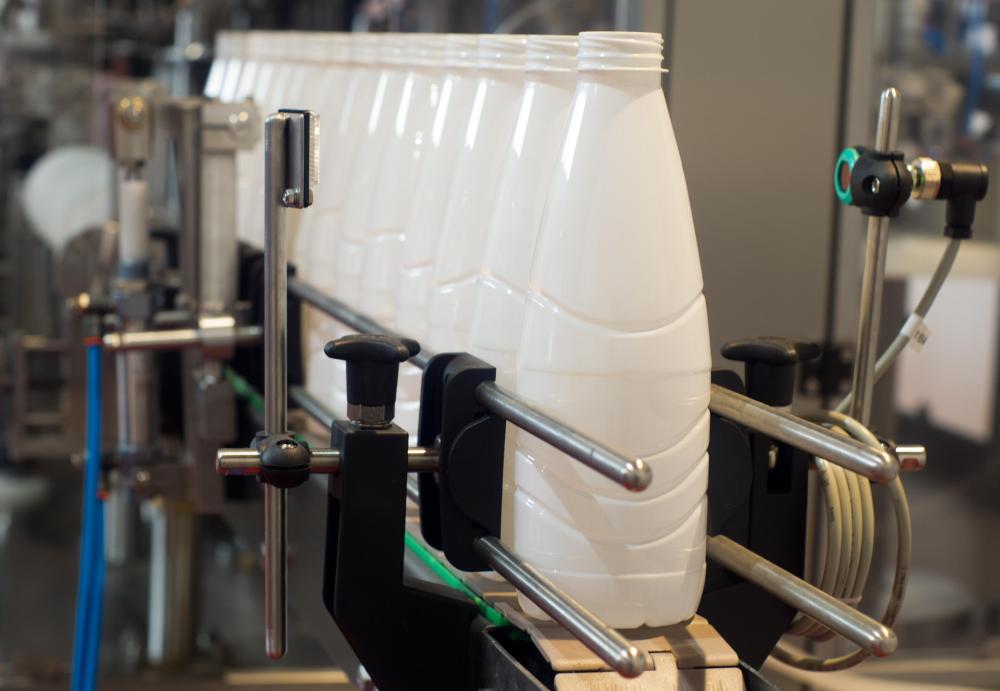At TheHealthBoard, we're committed to delivering accurate, trustworthy information. Our expert-authored content is rigorously fact-checked and sourced from credible authorities. Discover how we uphold the highest standards in providing you with reliable knowledge.
What is Food Intoxication?
Food intoxication is a form of food-borne illness caused by ingesting exotoxins made by organisms such as bacteria. Toxins can be present even when the bacteria or other causative organisms are not, and it is possible to develop food intoxication by eating animals that have consumed toxin-producing organisms, as seen with some types of shellfish poisoning. Onset of illness is usually very rapid and people can become very sick. Treatment varies, depending on the toxin involved, but can include administrating medications, providing the patient with fluids, and offering other supportive care to help patients recover.
Bacteria, fungi, and other organisms known to contaminate food sometimes produce toxic compounds as they develop. Known as exotoxins, these compounds are byproducts of the organism's normal metabolic processes and they may resist heat treatment and freezing. Bacteria present in the natural environment can contaminate food and they can also be introduced during harvesting, handling, processing, and preparation.

When people eat food contaminated with exotoxins, they can develop severe symptoms like nausea, vomiting, and diarrhea. Numbness and tingling around the lips can also be observed in some cases. The symptoms usually appear quickly because the toxins act quickly on the body. Unlike an infection caused by eating contaminated food, where the organisms have to breed in the gut before symptoms develop, people with food intoxication get sick immediately.

In medical treatment, the first step is to determine the identity of the toxins. Patients can be tested and they may also be interviewed, as their recent dietary history can provide important clues about the organisms involved. Doctors may administer drugs to counteract the toxin, if they are available. Otherwise, patients will be encouraged to rest and drink fluids. If symptoms like organ damage and difficulty breathing develop, supportive therapies can be provided to keep the patient as stable as possible until the toxins have been expressed from the body.

After recovering from food intoxication, some patients experience lingering effects. This can include damage to the nerves, as well as organs. The patient may require physical therapy or other supportive care while in long-term recovery. Taking note of food handling precautions, eating in clean facilities, and avoiding foods labeled as dangerous will help people avoid food intoxication. It is important to pay attention to food recalls, which often involve bacterial toxins, and to be careful to eat shellfish from clean waters to limit exposure to toxins produced by organisms like dinoflagellates.
AS FEATURED ON:
AS FEATURED ON:


















Discussion Comments
Diseases which result from pathogenic microorganisms are of two types: infection and intoxication.
Foodborne infection is caused by the ingestion of food containing live bacteria which grow and establish themselves in the human intestinal tract.
Foodborne intoxication is caused by ingesting food containing toxins formed by bacteria which resulted from the bacterial growth in the food item. The live microorganism does not have to be consumed.
At a sushi restaurant, my friend ordered sushi and I ordered a (hot) bento box; it came with a bowl of rice. I got sick within 10 minutes of leaving the restaurant. I had extreme abdominal cramps and raging diarrhea, but my friend did not. I learned that warm rice - or any grain - has to be kept a certain temperature or bacteria develops, and the result is "food intoxication."
I wonder what food intoxication vs food infection is?
Is food infection where someone gets worms from eating something?
My husband and I went to a Sushi bar one night. When we got back home, we sat down to watch some TV. About 30 minutes later, he began to vomit and he was pale and sweating.
I took him out to the ER and the doctor said he has food poisoning. He said he had the kind you get from eating raw fish. My husband and I have eaten at that Sushi bar several times and have never gotten sick before.
The doctor said to watch for cleanliness at the places we eat at, and to seriously consider giving up Sushi. We did not have to think twice--no more Sushi for us, we only want cooked food.
Post your comments